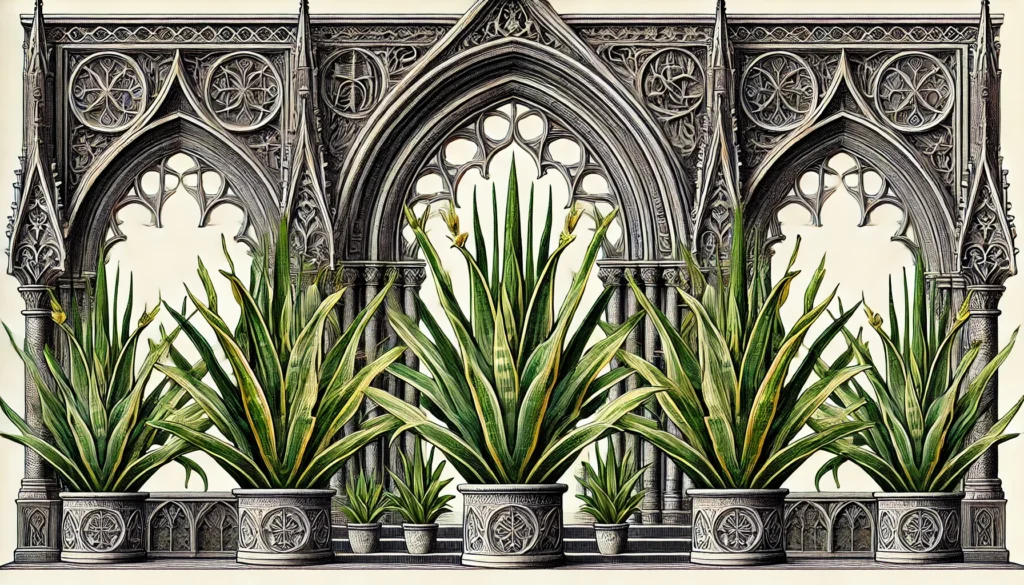

Home » Cat Plants » Can the Mother In Law Plant be Harmful to Cats?

Mother In Law Plant (Kalanchoe tubiflora) is indeed harmful to cats if ingested. This plant, also known as Chandelier Plant or Mother of Millions, contains bufadienolides, which are cardiac glycosides that can cause serious health issues in felines. The toxicity level is considered moderate to severe.
Commonly found as a houseplant or in outdoor gardens in warm climates, this succulent poses a significant risk to curious cats who may be tempted to nibble on its leaves or flowers.
Ingestion may cause mild gastrointestinal upset, but is generally not life-threatening.
Ingestion can result in mild symptoms like vomiting, diarrhea, or drooling. Rarely fatal but may require veterinary care.
Eating these plants can lead to more pronounced symptoms like abdominal pain, lethargy, or difficulty breathing. Veterinary intervention may be necessary.
Ingesting even small amounts can cause severe symptoms like organ damage, seizures, or cardiac failure without rapid treatment.
All parts of these plants are extremely poisonous to cats and can quickly lead to death, even with immediate veterinary care.
** Please note: Please note that toxicity level can vary based on the amount ingested and the specific cat. It's always best to keep these plants completely inaccessible to cats and seek immediate veterinary care or call the poison hotline if you suspect your cat has ingested any part of a toxic plant.
If a cat ingests any part of the Mother In Law Plant, it can experience a range of symptoms due to the plant’s toxic compounds. It’s crucial for cat owners to be aware of these signs and seek immediate veterinary care if they suspect their pet has consumed this plant.Common symptoms include:
When presented with a cat showing symptoms of Kalanchoe tubiflora poisoning, a veterinarian will likely follow these steps for diagnosis:
Based on these findings, the veterinarian may diagnose cardiac glycoside toxicity or Kalanchoe poisoning.

A: The Mother In Law Plant, also known as Kalanchoe tubiflora, is toxic to cats. It contains bufadienolides, which can cause vomiting, diarrhea, and in severe cases, heart failure.
A: If a cat consumes Kalanchoe tubiflora, it can experience mild to severe symptoms such as vomiting and diarrhea. In rare cases, it may lead to heart arrhythmias or difficulty breathing, requiring immediate veterinary attention.
A: Yes, the Mother of Thousands (a type of Kalanchoe) is toxic to cats. Ingesting it may cause gastrointestinal upset and could also lead to cardiac issues due to its toxic components.
A: Yes, plants like Mother Fern and Spider Plants are safe alternatives to Kalanchoe tubiflora for households with cats. These plants are free from harmful compounds like saponins and bufadienolides.
A: To protect your cat, keep Kalanchoe tubiflora out of reach by placing it in a cat-free zone or using physical barriers. Consider replacing it with cat-safe plants to avoid any potential risks.
A: If your cat ingests Kalanchoe tubiflora, contact your veterinarian immediately. Inducing vomiting and providing symptomatic care like hydration may be necessary depending on the severity of the ingestion.
The Mother-in-Law’s Tongue plant, native to West Africa, has been cultivated for centuries. Its resilience and striking appearance led to global popularity as a houseplant by the early 20th century. The Florida foliage industry began in the 1920s with its mass production for Woolworth stores.
Today, this hardy plant remains a favorite for its air-purifying qualities and low maintenance needs. While traditionally classified as Sansevieria, recent DNA studies have reclassified it under the Dracaena genus. Its evolution continues to be studied, with research revealing a relatively recent diversification around 3.4 million years ago.
Please note: The information shared in this post is for informational purposes only and should not be considered as veterinary medical advice.
🐾 A hilarious or heart-melting cat video
🐾 Our latest paws-on review of a cool cat toy